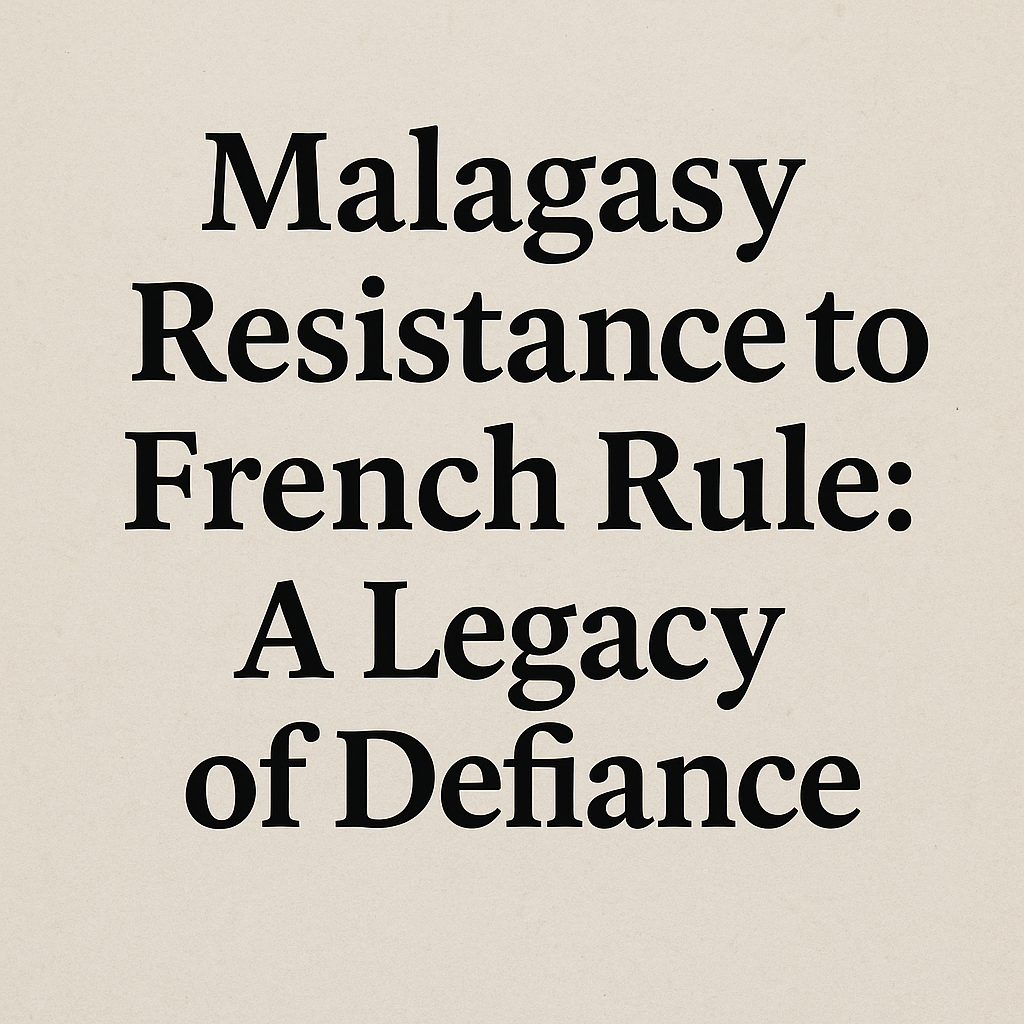Madagascar’s fight against French colonialism stands as one of Africa’s boldest and most determined resistance movements. From the Menalamba Rebellion in the 1890s to the widespread 1947 uprising, the Malagasy people consistently rejected foreign domination and fought to protect their land, culture, and sovereignty.
The Menalamba Rebellion (1895–1897)
After France annexed Madagascar in 1896, resistance surged almost immediately. The Menalamba Rebellion, named for the red shawls worn by its fighters, grew from grassroots frustration. Many commoners and traditionalists viewed the Merina monarchy’s cooperation with France as betrayal. They also opposed the growing influence of Christianity, which they saw as a threat to Malagasy traditions.
The fighters rejected foreign control with both armed resistance and spiritual defiance. French troops eventually crushed the movement and executed or exiled many of its leaders. But the rebellion proved that the Malagasy spirit of independence ran deep—and wouldn’t fade easily.
The 1947 Uprising
On March 29, 1947, nationalist groups launched a major revolt against French rule. Years of broken promises, economic exploitation, and political repression fueled the uprising. Fighters attacked military posts, plantations, and colonial offices across the island.
The French responded with overwhelming force. Soldiers destroyed villages, carried out mass arrests, and killed tens of thousands of civilians. Although the French suppressed the rebellion, the uprising exposed the deep fractures in the colonial system and rallied support for independence.
A Lasting Legacy
Both rebellions—Menalamba and 1947—shaped Madagascar’s path to freedom. By 1960, the country finally gained independence. Today, the Malagasy honor their ancestors’ courage, remembering these rebellions not as defeats but as proof of a nation’s refusal to surrender.
The resistance in Madagascar continues to inspire global movements that seek justice, dignity, and self-determination.
